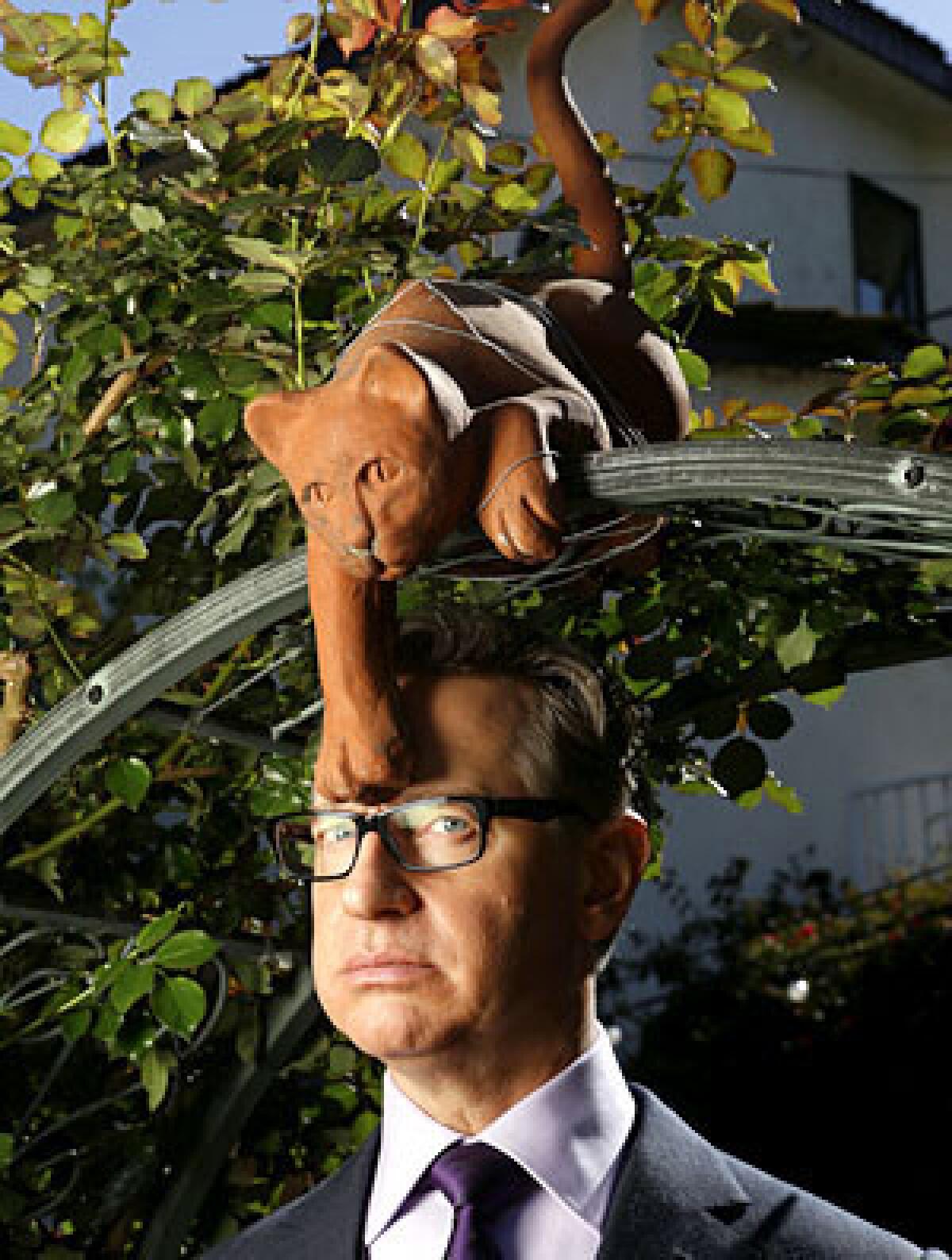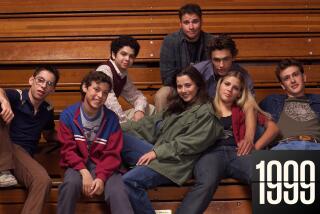Paul Feig puts ‘The Heat’ on funny women

Not long after Paul Feig created the beloved cult TV series “Freaks and Geeks” in 1999, studios began barraging him with coming-of-age sex comedy scripts, even though “Freaks,” with its sweet, sympathetic portrait of the perils of adolescence, was spiritually opposed to that kind of lunkheaded, frat-boy humor.
The mild-mannered Feig, the self-described “awkward guy” in high school, couldn’t relate to any of the material’s high-concept, horn dog ideas (“nerds don’t hang out with frat guys unless you’re Karl Rove trying to get in with them”), so he spent the next decade or so directing a couple of movies that didn’t do so well and episodes of TV series (“Mad Men,” “Arrested Development,” “The Office”) that reestablished his behind-the-camera bona fides.
Then in the wake of the runaway success of “Bridesmaids,” a screwball comedy celebrating female friendship, Hollywood tried to pigeonhole Feig again, this time as the funny guy who gets women.
And you know what? This time he’s OK with being labeled.
“I just love funny women, and they’ve had such crummy roles in the last 20 or 30 years of comedy,” Feig says during a long conversation in the backyard of the beautiful, English-accented, cottage-style Burbank home he shares with his wife of 18 years, Laurie.
“Comedy is kind of a boy’s game, and guys have this little boy’s take on women,” Feig continues. “Every beer commercial is ‘We’re having a great time and then — groan! — the chick shows up.’ Or the guy who picks the beer over the woman. And you think, ‘OK. That’s one way of looking at the world. But I’d like to show the other side of it.’”
For Feig, the next step on the women’s comedy liberation front comes with “The Heat,” a mismatched buddy cop movie pairing Oscar winner Sandra Bullock and “Bridesmaids” breakout star and Oscar nominee Melissa McCarthy that opens June 28. The comedy, written by “Parks and Recreation” producer and writer Katie Dippold, uses the trappings of a male-dominated genre to once again explore rapport between women. With grenades. And a missile launcher. And a conga line to an Air Supply song.
“The Heat” came together quickly last spring, and Feig began shooting it in July, the day after McCarthy finished “Identity Thief.” It felt like a natural post-”Bridesmaids” progression for the dapper 50-year-old director, who had spent the previous year working on a new “Bridget Jones’s Diary” movie, only to eventually pass on the project.
“I liked it because it says something about how hard it is for dedicated professional women to find their groove,” Feig says of “The Heat.” “I hate when movies say: ‘You’ve got to choose a guy over your job.’ I wanted to do a movie about two women who are great at their jobs and love their work so they don’t have to compromise. The payoff is finding a like-minded person who becomes your friend and support group.”
Feig seems to have accumulated plenty of those kinds of sympathetic souls in his own life, including McCarthy, who has become such a close friend that Feig travels to New York to be by her side for her talk show appearances and “Saturday Night Live” hosting gigs, and now screenwriter Dippold. Under his new first-look production deal with 20th Century Fox, Feig plans to direct Dippold’s next screenplay, a mother-daughter adventure comedy.
VIDEO: Melissa McCarthy as an abusive coach on ‘SNL’
“He just innately understands women and wants to tell their stories in his sweet, aggressively funny way,” Dippold says. “I can’t imagine him making a movie where the female character is standing off to the side, annoyed at her crazy husband. If he ever did something like that, I’d wonder: ‘Who took over Paul Feig’s brain?’”
For all the talk of gender, Feig’s ultimate goal is to eradicate the wall that divides so-called chick flicks and man-child guys’ comedies and simply make funny, emotionally honest movies that appeal to both sexes. But don’t be surprised if, at least for the foreseeable future, his movies spotlight women.
“Producers lecture me on a fairly regular basis, saying, ‘Be careful. You don’t want to be pigeonholed just doing women’s movies,’” Feig says. “And you ask why and they tell you it’s because there are no women international stars. Fine. Let’s make movies where these women are so great that people overseas love them and go see them. To me, it’s not about economics. It’s about fairness. That’s what really bothers me.”
More to Read
Only good movies
Get the Indie Focus newsletter, Mark Olsen's weekly guide to the world of cinema.
You may occasionally receive promotional content from the Los Angeles Times.











